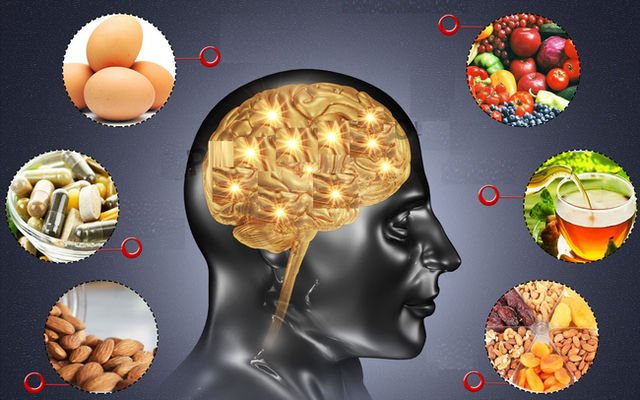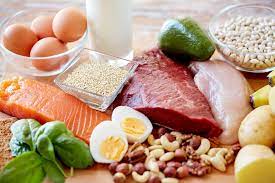The Importance of Food for Brain Health
Energy Supply: The brain uses a large amount of energy and food, especially foods rich in glucose, is the main source. Glucose deficiency can cause fatigue and reduced ability to concentrate.
Protect and maintain brain health: Vitamins and minerals, such as vitamin B, D, omega-3 and antioxidants, play an important role in helping to enhance memory and improve brain function.
Support brain development: Food plays an essential role in building brain structure, nutrients such as choline, DHA and protein contribute to promoting brain development, helping children become smarter.

The importance of food for brain health.
Enhance memory: Nutritious foods also help improve memory, prolong concentration and enhance memory.
Impact on mood and mental health: Diet affects mood and mental health through biochemical mechanisms. Maintaining a healthy weight and eating a balanced diet helps reduce the risk of depression and anxiety.
Protects the brain from damage: Antioxidants in foods help protect the brain from the harmful effects of oxidative stress and infection. This helps maintain brain health and acts as a memory-boosting food.
Reduce the risk of brain diseases: A scientific diet can help reduce the risk of neurodegenerative diseases such as Alzheimer's and Parkinson's.
Notes when using food to increase memory during exam season
Choose nutrient-dense foods: Focus on foods rich in omega-3s, B vitamins, and antioxidants, such as fatty fish, nuts, green vegetables, and fruits. These foods help improve brain function and boost memory.

Choose nutritious foods.
Avoid processed foods: Limit your intake of fast foods and foods high in sugar and saturated fats. These foods can cause fatigue and reduce your ability to concentrate.
Drink enough water: Water is essential for maintaining brain function. Make sure you drink enough water every day to avoid dehydration, which can affect concentration and memory.
Reasonable meal times: Eat on time and do not skip meals. A healthy snack before studying can provide the necessary energy for the brain.
Splitting meals: Splitting meals into several small meals throughout the day helps provide stable energy and maintain alertness throughout the exam period.
Watch your caffeine intake: Caffeine can help increase alertness, but it should be used in moderation. Too much caffeine can cause anxiety and interfere with sleep.

In addition to eating, maintain a healthy lifestyle by exercising.
Don't forget a balanced diet: Make sure your diet includes all food groups to provide your body with all the vitamins and minerals it needs.
Plan your meals and snacks to ensure you get enough nutrition throughout exam season. This will also help you avoid making unhealthy food choices when you feel hungry.
Combine with healthy living habits: In addition to eating, maintain a healthy lifestyle by exercising, getting enough sleep, and reducing stress. All of these factors affect concentration and memory.
Source: https://giadinh.suckhoedoisong.vn/nhung-luu-y-khi-su-dung-thuc-pham-de-tang-tri-nho-cho-si-tu-trong-mua-thi-17225060311083824.htm






























































































Comment (0)